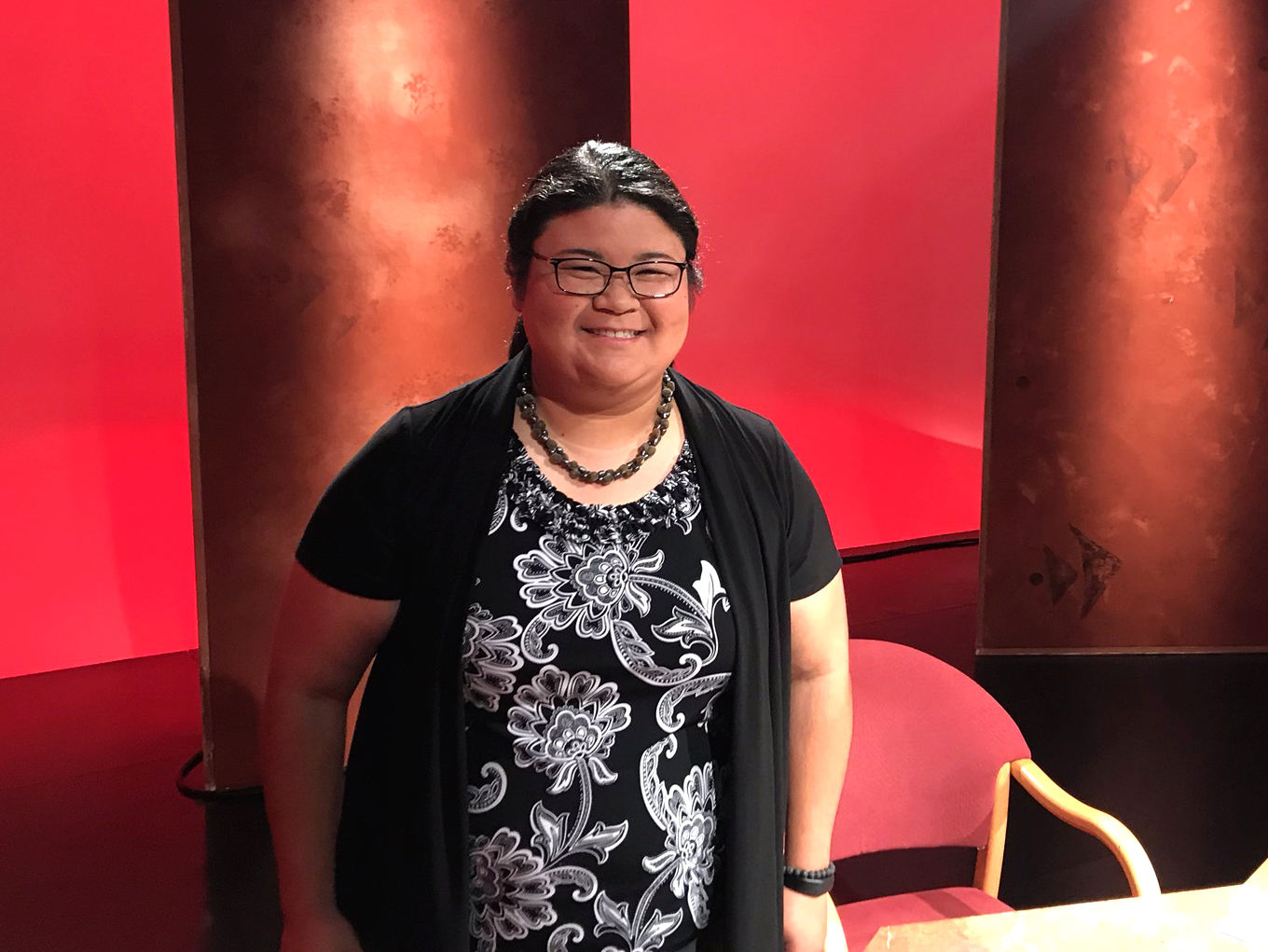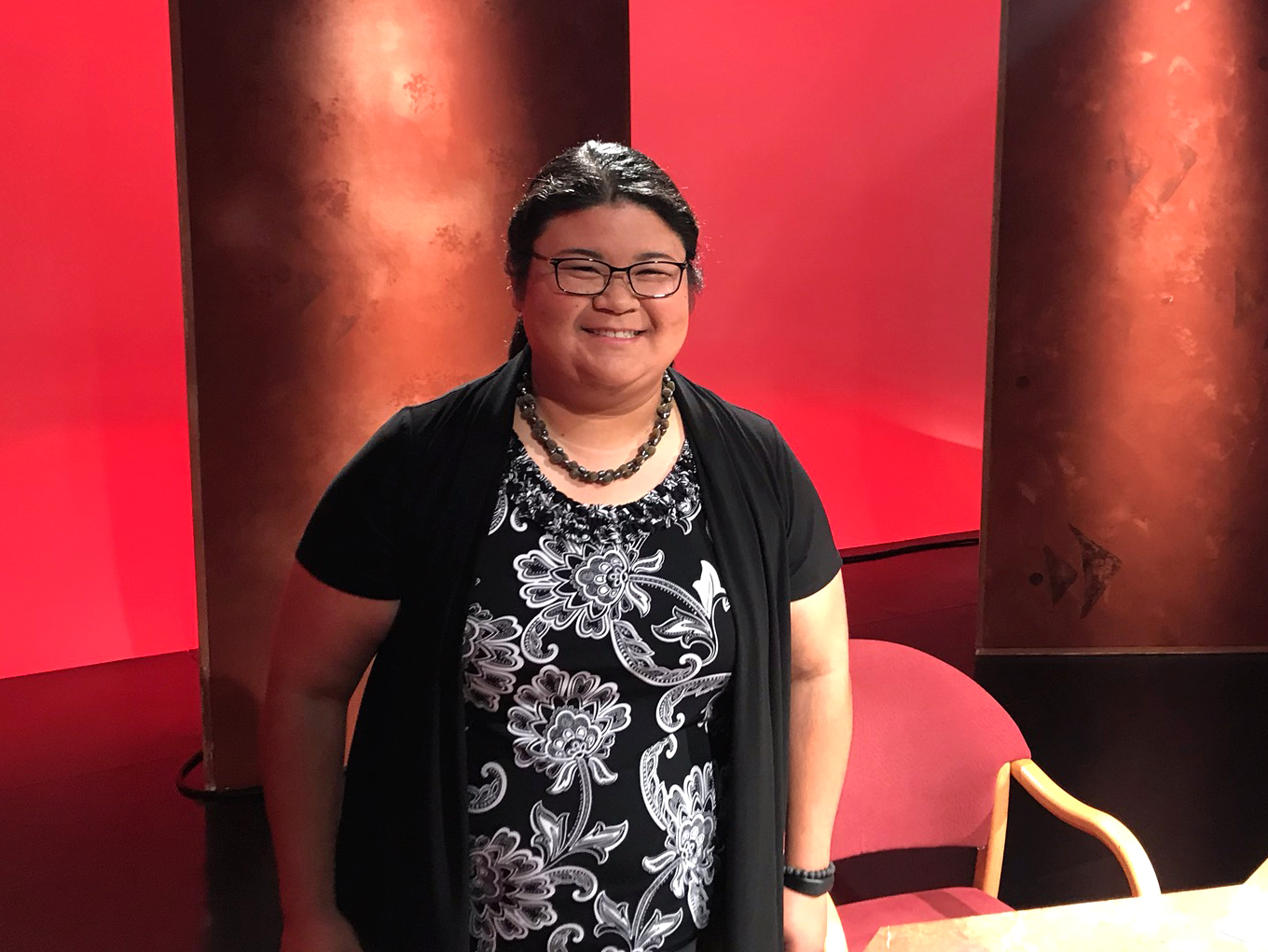"We have a teacher shortage crisis. We have a thousand current open positions which means that we've got about 60,000 students that are not being taught by a qualified teacher at some point in their school day," said Sarah Tochiki, Chiefess Kamakahelei Middle band director and HSTA Kauai Chapter vice president during a live broadcast on PBS Hawaii Thursday night. "I think our biggest export right now isn't pineapples. It's our most educated children who are moving to the mainland, and they know they can find better opportunities."
Tochiki was one of four panelists on a special edition of "What's It Going to Take?" on Insights on PBS Hawaii. Thursday's program explored the effects of low wages and the lack of affordability in Hawaii.
Tochiki told the TV audience that her younger sister who lives in Washington state is also a teacher.
"She makes $1,000 more a month than I do in take-home pay (in the Seattle area) and she has only a third of the experience that I do," she said. "And I'm not going to lie, it's tempting to go, OK, maybe I'll go live in Seattle for a little bit, go live with my sister. I can pay off a bunch of my mortgage. I can have this great life and enjoy living on the mainland, and then maybe I'll be ready to come back to Hawaii when I can actually afford it. But I love my community and I love Kauai and being able to make a difference in the kids' lives. But how can you do that if you're worrying about having to pay for that $8 gallon of milk?"
You can stream the episode by clicking on the video player above or following this link, and an encore will air Sunday, Nov. 10, at 2 p.m. on PBS Hawaii.
Tochiki said Hawaii public school teachers, whose salaries are the lowest in the country factoring in Hawaii's high cost of living, constantly spend their own money on basic supplies for classrooms and their students.
"Teachers spend money out of their pockets, like $250, $500, half of our teachers give that much, thousands of dollars that they're putting into their classrooms," she said.
"As a teacher, if I see that a student can't go on a field trip, I'm going to put $3 for the bus, or I'm going make sure, 'Hey, your slippers are broken? I picked up a couple extra slippers. Here's some slippers.' Teachers are constantly making sure that their students are okay, because we only see them from 7:45 to maybe 2:45 every day, but we have no control over what happens outside of the school day. But whatever we can do to make sure that they're going to be successful, even if it's slipping a couple of granola bars because we know they can't afford to eat, we're going to have to do," Tochiki added.
While public schools take up a major portion of the state's annual budget, Tochiki said signs of underfunding are everywhere on campuses.
"Just walk around a school for a day. Ask the special education teacher if they have enough parapros (paraprofessionals such as educational assistants) in their classroom. Ask a teacher how many books the kids had to share that day. Ask if the bathrooms work and if there's toilet paper in them. These are real things that we need tax dollars for," said Tochiki. "I don't know where those tax dollars are going to come from. Hopefully there's some magic tree somewhere that we can get them off of. But that's why I'm so torn, because I know that taxes pay for what we need, and if education is going to be that great equalizer that we can provide our students, and provide them the skills that they need, we really need to find the money to be able to do so. It shouldn't just be that the schools in the rich and affluent areas have the best opportunities and the schools that are the most supported. We should be supporting every school, every student throughout our entire state, and that's going to take money."
Tochiki, who was born and raised on Oahu, also spoke about her challenging situation finding a place to live when she first moved to Kauai after graduating from the Lawrence University Conservatory of Music in Wisconsin.
"I wanted to become a band director and come back here and give back to our community and teach kids and make them into musicians that really love music and become great people that are then going to come back to our community and it should be a cyclical thing," Tochiki said. "When I first got the job on Kauai, I had no place to live and so when I arrived on the island, the only place I could find—because there's such a low inventory of places to live—was a converted garage that was made into a studio apartment that was $1,200 a month, which was more than one of my paychecks. So when you go to college, they tell you you're going to get a great job, you're going to graduate, you're going to find this great job, have this great life, and then it was like, 'Okay, I don't know if I'm going to be able to pay for everything that I need to with the amount I'm making as a brand-new teacher.'"
In addition to her band director duties at Chiefess Kamakahelei Middle School in Lihue, she directs the Kauai Community College Instrumental Music Program, which includes the Wind Symphony, Jazz Ensemble and Symphony.
In 2016, she co-led the Kauai All-Island Band to be the first band from Hawaii to march in the National Memorial Day Parade in Washington, D.C. The KAIB is made up of middle school through community college-aged students. In 2017, the KAIB traveled to the Holiday Bowl Game and Parade in San Diego, where they won third place in the field show competition and first place in the parade competition in their division. The band's next trip will be to Japan in June 2020.
Each year, Tochiki also coordinates the Kauai Solo and Ensemble Festival and the Kauai Youth Honor Band. She is assisting in the development of the Kauai Opio and Keiki Orchestra, a free program for aspiring violin, viola, and cello players, in partnership with the Boys and Girls Club-Lihue Clubhouse.
She will be honored by the YWCA of Kauai with one of its 2019 Na Wahine Alakai O Kauai Awards on Nov. 15, celebrating women leaders on the Garden Isle.
Three other people appeared on Thursday's Insights on PBS Hawaii program with Tochiki: Erin Kanno Uehara, the owner of Choco lea, a small chocolate business in Manoa; Kamalani Rapoza, a warehouse worker from Palolo; and Sumner La Croix, a University of Hawaii at Manoa economist.
You can stream the episode by clicking on the video player above or following this link. An encore will air Sunday, Nov. 10, at 2 p.m. on PBS Hawaii.


